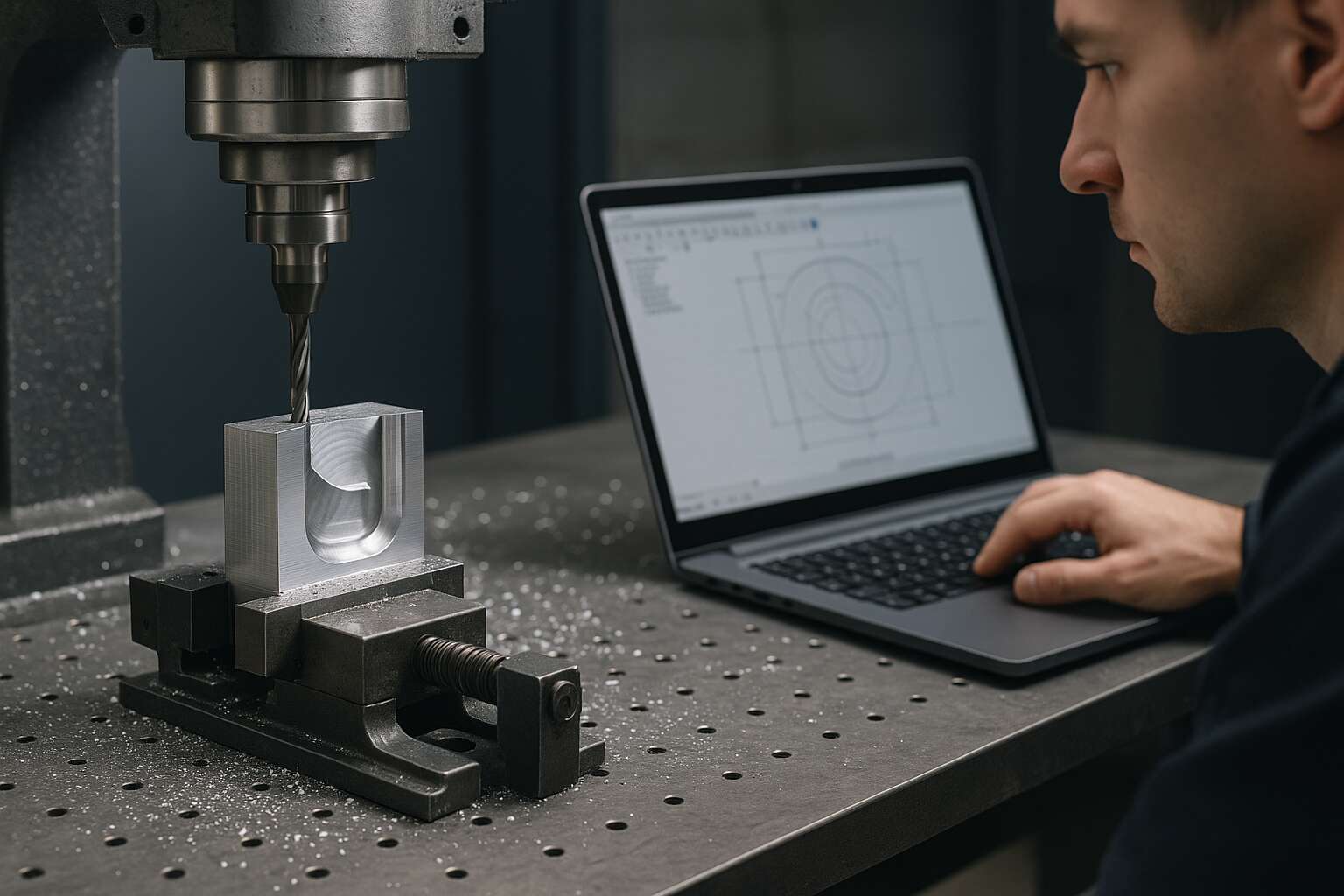Bringing a physical product to life requires more than a good idea—it demands precision. For hardware startups, that often means turning to CNC machining.
Whether refining a prototype or producing a short run of high-quality parts, CNC machining services offer unmatched accuracy and speed without the massive investment required for full-scale tooling.
This guide breaks down how CNC machining fits into modern prototyping and low-volume production—so founders can move fast, iterate better, and stay lean.
Why CNC Machining Is a Startup’s Secret Weapon
Forget injection molds with $10K+ tooling costs. CNC machining lets early-stage founders build real, functional parts from real materials—without the need for mass production commitments.
Here’s why it matters:
- Material Flexibility: Use aluminum, brass, stainless steel, ABS, nylon, and more
- Speed: Machined parts can be ready in days, not weeks
- Precision: Hold tight tolerances for mechanical fit and real-world testing
- Low Volume Friendly: Perfect for 1–100 units without the tooling tax
Use Case: A founder designing a smart lock enclosure can CNC 10 aluminum housings for durability testing, visual polish, and investor demos—all without tooling.
What Is CNC Machining for Prototypes?
CNC (Computer Numerical Control) machining uses pre-programmed software to direct tools—like drills, mills, and lathes—to cut parts from solid materials.
For prototyping, it’s ideal when:
- Tolerances matter (e.g., enclosures, brackets, moving parts)
- Real-world materials are required
- Your prototype needs strength, polish, or heat resistance
- You’re prepping for Kickstarter, demo day, or initial influencer seeding
CNC Machining vs. 3D Printing
3D printing is great for speed and shape testing. But when durability, appearance, or final function matters, CNC wins. Machined parts behave like the real thing—because they are.
Low-Volume Production: Where CNC Still Shines
Need 25, 50, or 100 units to test-market a product? CNC machining still works before you scale.
- No Tooling Required: You avoid the cost of steel molds or expensive dies
- Design Flexibility: Quickly update or tweak the model between batches
- Quality First Batch: Early adopters get a polished experience
Example: A bootstrapped e-commerce founder wants to launch 50 new ergonomic phone stand units. CNCing the base from anodized aluminum delivers the premium look and feel early customers expect, without the MOQ headache.
Key CNC Machining Services to Know
When sourcing CNC services, here are the ones most relevant for prototyping and small batch builds:
- CNC Milling – Ideal for complex 2.5D or 3D parts
- CNC Turning – Perfect for cylindrical parts (shafts, knobs, connectors)
- Multi-Axis Machining – For parts needing compound angles or intricate cuts
- Surface Finishing – Anodizing, polishing, bead blasting for premium aesthetics
- Threading & Tapping – Internal or external threads for screws and assembly
Look for services that support CAD formats like STEP, IGES, or SolidWorks native files.
CNC Machining at PrototyperLab: Tailored for Startup Needs
Startups don’t need 10,000 parts—they need 10 great ones. That’s where PrototyperLab’s CNC machining services stand out.
- Prototype to Production: CNC machining for prototypes and follow-up batches as low as 20 units
- Fast Turnaround: Parts in days, not weeks, thanks to streamlined local + offshore capacity
- $25/hr Transparent Pricing: Know precisely what you’re paying for, down to the hour
- Material Options: Aluminum, steel, polycarbonate, and startup-ready engineering plastics
- Integrated Process: Combine CNC machining with 3D printing, silicone molding, and more in one place
Whether it’s your first product or your fifth iteration, CNC gives you the fit, finish, and function to move forward confidently.
Common Startup Applications for CNC Machining
- Consumer Electronics – Machined enclosures, brackets, heat sinks
- IoT Devices – Sensor mounts, internal frames, switch housings
- Smart Home Products – Wall mounts, rotating parts, control knobs
- Robotics & Automation – Precision joints, gear carriers, end-effectors
- Wearables & Accessories – Machined stainless steel cases or aluminum clips
These aren’t theoretical examples. They’re the kinds of real-world parts PrototyperLab helps founders build every week.
How to Prepare for CNC Machining
If you’re new to CNC, here’s how to get production-ready:
- Have a Solid CAD File: Use Fusion 360 or SolidWorks. Ensure dimensions, tolerances, and materials are specified clearly.
- Know Your Materials: Choose based on strength, weight, and finish—aluminum is a top pick for many prototypes.
- Set Tolerances Wisely: Only request tight tolerances where they’re essential. It saves cost and time.
- Clarify Surface Finish: Communicate whether you need polished, anodized, or matte surfaces.
- Order a Test Piece First: One unit will tell you everything you need to know before you buy 25 or 50.
CNC Isn’t Just a Service—It’s a Competitive Edge
When time-to-market is tight and budgets are real, CNC machining for prototypes can give you the edge over founders still stuck in 3D print-only loops or waiting for injection mold quotes.
With CNC, you validate with confidence—real parts, real results, ready for real users.
At PrototyperLab, CNC machining is just one part of a startup-focused production pipeline. Founders can prototype in 7 days, produce 20+ units affordably, and launch with U.S. contracts and Vietnam-based production advantages.

